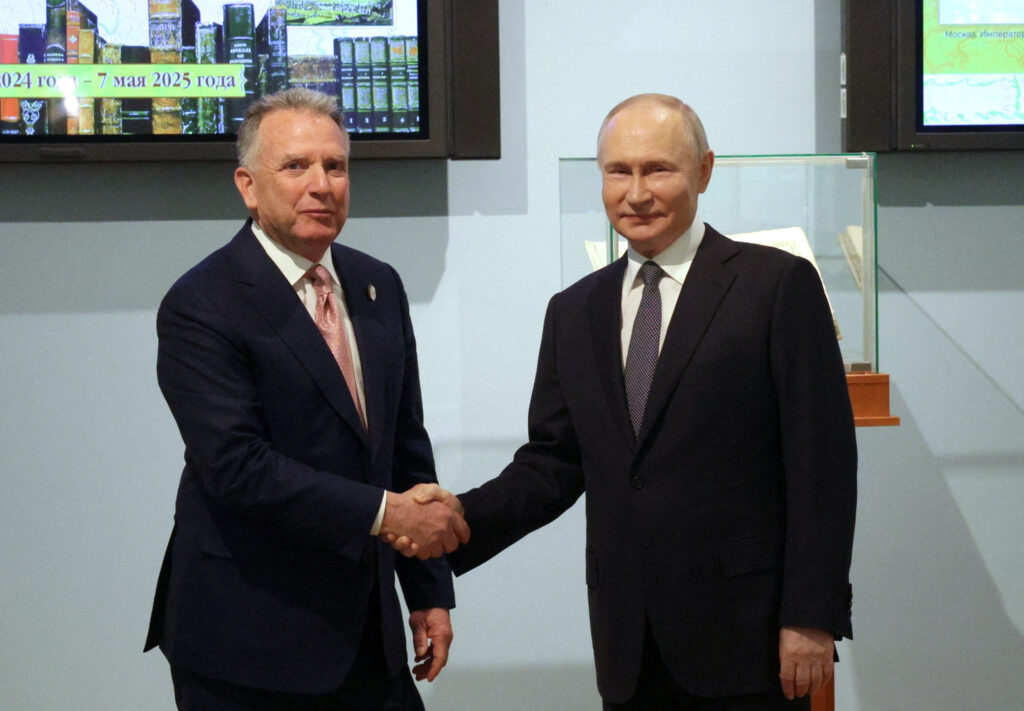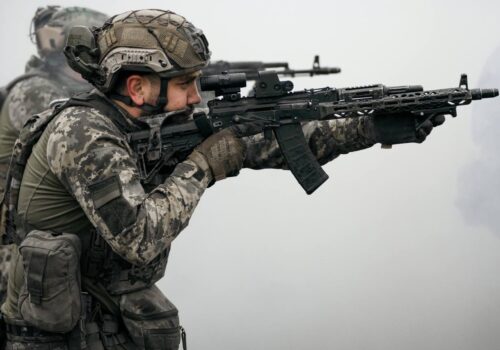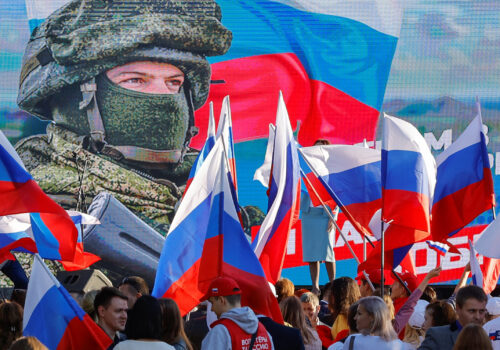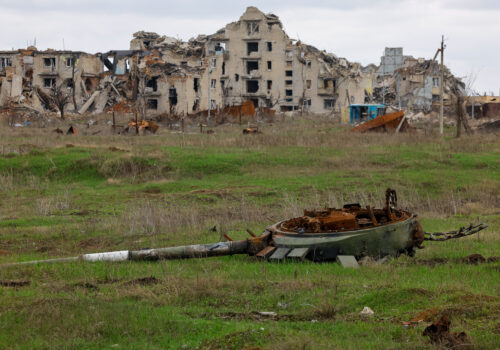During the 2024 election campaign, US President Donald Trump famously vowed to end the Russian war on Ukraine “in 24 hours.” Three months into his presidency, the US leader now appears to be rapidly losing patience with a faltering peace process that is showing few signs of progress. Trump stated on April 18 that he wanted a ceasefire agreement in place quickly and would “take a pass” if Moscow or Kyiv “make it very difficult” to reach a peace deal.
Trump’s latest comments reflect mounting US frustration. Speaking on the same day in Paris, United States Secretary of State Marco Rubio warned that the US may soon “move on” from efforts to broker a peace deal between Russia and Ukraine if there is no progress in the coming days. “We are now reaching a point where we need to decide whether this is even possible or not,” Rubio told reporters.
It is not difficult to see why the Trump White House is feeling discouraged. While Ukraine agreed to a US proposal for an unconditional 30-day ceasefire on March 11, Russia has so far refused to follow suit. Instead, the Kremlin has offered a long list of excuses and additional conditions. This has led to accusations that Russian President Vladimir Putin has no real interest in peace and is deliberately engaging in stalling tactics in a bid to drag out negotiations and continue the war until he has political control of Ukraine.
Stay updated
As the world watches the Russian invasion of Ukraine unfold, UkraineAlert delivers the best Atlantic Council expert insight and analysis on Ukraine twice a week directly to your inbox.
Critics of Trump say he has been too reluctant to pressure Putin and has done little to convince the Kremlin dictator that the time has come to abandon his invasion. They claim Trump has consistently signaled his readiness to offer Russia concessions while adopting a noticeably tougher stance toward Ukraine. This has included multiple statements blaming Ukraine for Russia’s invasion.
Since the very early stages of Trump’s peace initiative, the US has ruled out the prospect of Ukraine joining NATO. This was recently underlined by US envoy General Keith Kellogg, who confirmed that NATO membership for Ukraine was “off the table.” Kellogg’s comments were welcomed by the Kremlin. “Of course, this is something that causes us satisfaction and coincides with our position,” noted Kremlin spokesman Dmitry Peskov.
The US has also made clear that it expects Europe to play a leading role in any peace settlement, including the provision of security guarantees for Ukraine to prevent any future repeat of Russia’s current invasion. This is part of a broader foreign policy transition that looks set to see the United States reduce its historic commitment to European security in order to focus more on Asia.
After taking office in January, Trump threatened to target Putin’s energy sector and extended some existing sanctions, but he has so far chosen not to impose any additional economic measures against Moscow. When Trump unveiled landmark new tariffs in early April, Russia was one of the few major economies not on the list.
US officials said the decision not to impose tariffs was because bilateral trade had already effectively stopped due to sanctions imposed following Russia’s February 2022 full-scale invasion of Ukraine. However, trade with Russia is greater than trade with a number of countries subject to the new tariffs. Meanwhile, Trump and other US officials have frequently talked up the prospect for greater economic cooperation between Russia and the United States.
In the diplomatic arena, the Trump White House has sought to avoid direct criticism of Russia in favor of more neutral messaging that prioritizes the need for peace. This approach has seen the United States siding with Moscow at the United Nations and voting against UN resolutions condemning the Russian invasion of Ukraine. US officials also reportedly refused to back a statement by the G7 group of nations condemning Russia’s recent Palm Sunday attack on the Ukrainian city of Sumy, which killed dozens of civilians.
Eurasia Center events

The Kremlin has responded approvingly to the dramatic recent shift in the United States approach toward Russia’s invasion of Ukraine. In early March, Russian officials noted that US foreign policy now “largely coincides with our vision.” However, while Putin has good reason to welcome the Trump administration’s stance on Ukraine, he has so far shown little interest in reciprocating by offering any concessions of his own. Far from it, in fact. Since the start of bilateral talks with the United States in February, the Russian military has significantly increased its bombing campaign against Ukrainian cities. In recent weeks, Russian forces have launched a major new spring offensive in Ukraine.
The Kremlin’s negotiating position in ongoing US-led talks is similarly hard line and reflects Russia’s continued commitment to ending Ukrainian independence. Moscow’s demands include official recognition of Russian control over four partially occupied Ukrainian provinces, a complete end to all Western military support for Kyiv, and the drastic reduction of the Ukrainian army to a mere skeleton force, apparently with the intention of leaving Ukraine defenseless against a future phase of Russia’s invasion.
Russia’s uncompromising current approach reflects Putin’s conviction that he can eventually outlast the West in Ukraine, and that by saying no, he will push Trump to offer more concessions. So far, Putin’s logic appears to be working. Trump’s efforts to win over the Kremlin seem to have convinced many in Moscow that they are now firmly on track to secure an historic victory and have no reason to offer any meaningful concessions. If Trump is serious about achieving a lasting peace in Ukraine, he must demonstrate that he is prepared to turn up the pressure on Putin and increase the costs of continuing the invasion.
Olivia Yanchik is an assistant director at the Atlantic Council’s Eurasia Center.
Further reading
The views expressed in UkraineAlert are solely those of the authors and do not necessarily reflect the views of the Atlantic Council, its staff, or its supporters.

The Eurasia Center’s mission is to enhance transatlantic cooperation in promoting stability, democratic values, and prosperity in Eurasia, from Eastern Europe and Turkey in the West to the Caucasus, Russia, and Central Asia in the East.
Follow us on social media
and support our work
Image: Russian President Vladimir Putin shakes hands with U.S. President Donald Trump's special envoy Steve Witkoff during a meeting in Saint Petersburg, Russia April 11, 2025. (Sputnik/Gavriil Grigorov/Pool via REUTERS)





